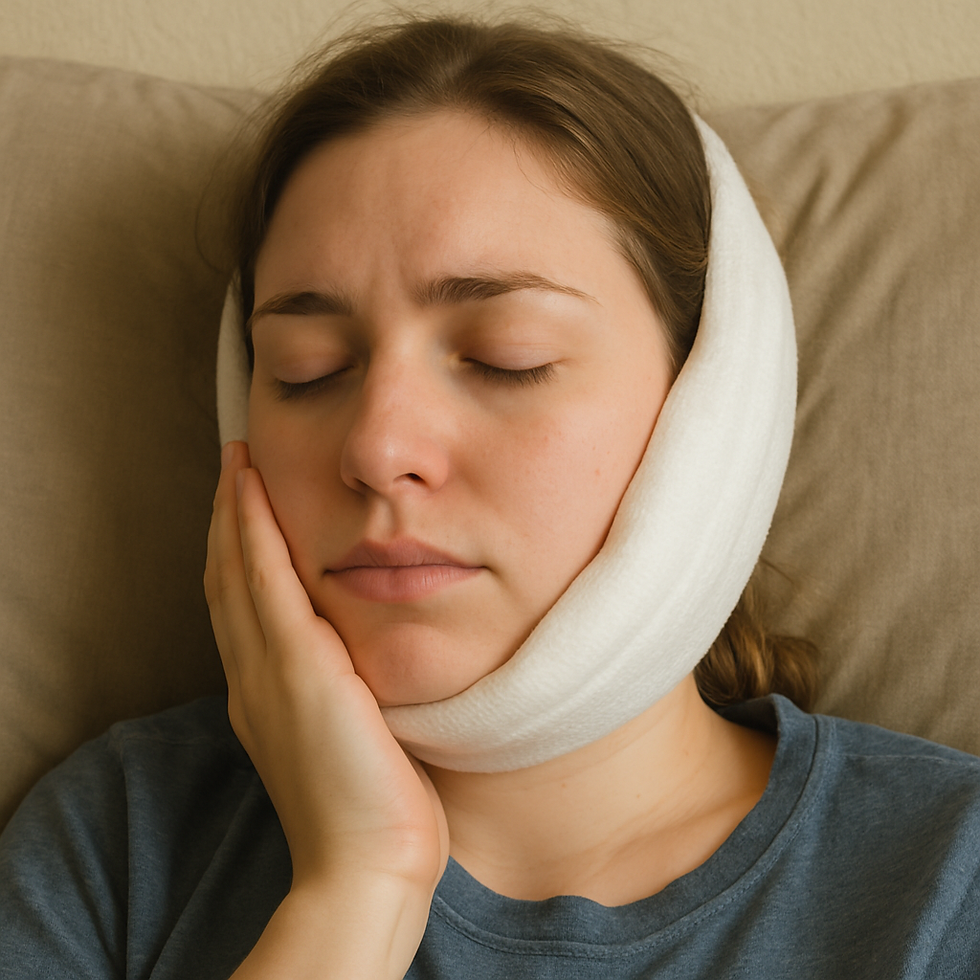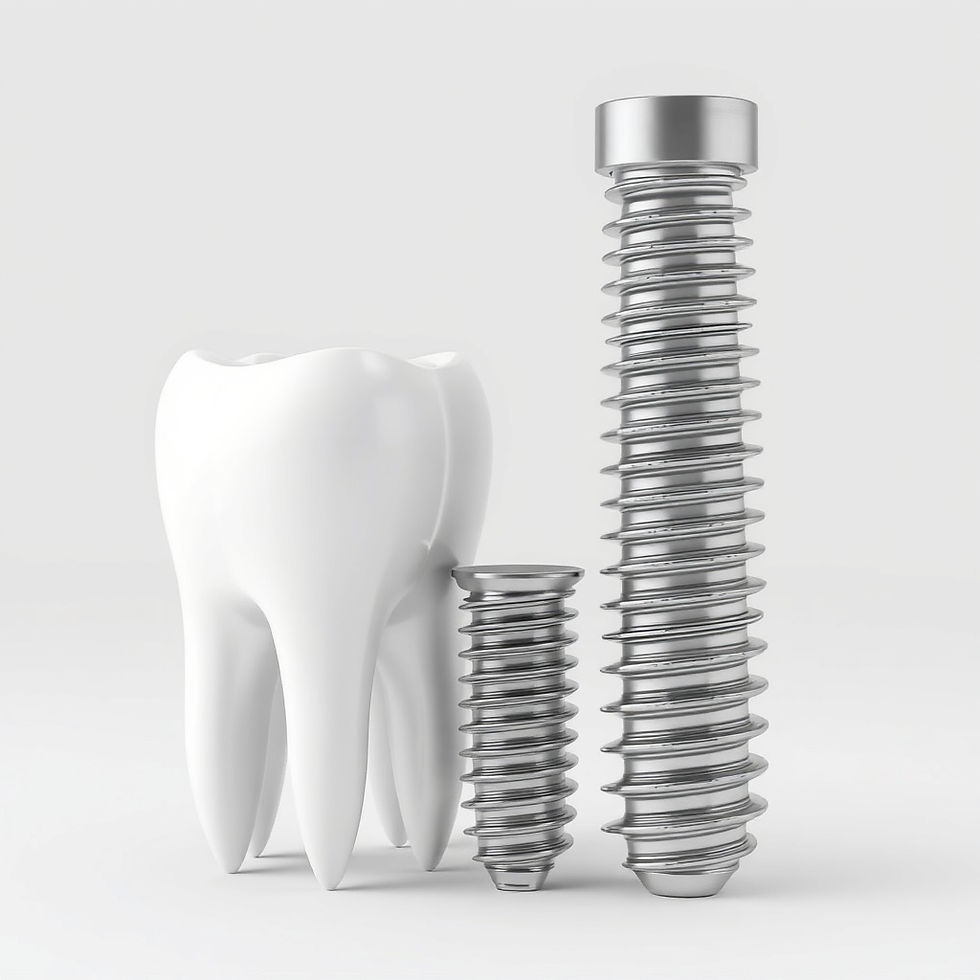Can I Brush My Teeth After Wisdom Teeth Removal?
- plurefy com
- Aug 19, 2025
- 5 min read

Having your wisdom teeth removed can be daunting, but knowing how to care for your mouth afterward is essential for a smooth recovery. One of the most common questions patients have is whether they can brush their teeth after the surgery. In this article, we'll explore the do's and don'ts of oral hygiene following wisdom teeth extraction and provide useful tips to make your recovery as comfortable as possible.
Understanding Post-Wisdom Teeth Removal Care
Wisdom teeth extraction is a surgical procedure that requires careful aftercare to promote healing and prevent complications. Right after the surgery, your mouth will be sensitive, and you'll need to follow specific instructions to ensure a proper recovery. Let's examine the basics of post-wisdom teeth removal care.
The First 24 Hours

The first 24 hours after your wisdom teeth removal are crucial. During this time, blood clots form at the extraction sites, which are essential for healing. It's important to protect these clots and prevent them from being dislodged. Therefore, avoid brushing your teeth, rinsing your mouth, or using mouthwash. Instead, focus on resting and allowing your body to begin the healing process. This period is vital for your body to adjust and initiate the natural healing cycle.
Managing Pain and Swelling
It is normal to experience some pain and swelling after the procedure. Over-the-counter pain relievers like ibuprofen can help alleviate discomfort. Applying an ice pack to your cheeks for 15-minute intervals can also reduce swelling. Be sure to follow your dentist or oral surgeon's instructions for pain management. Additionally, staying in a comfortable environment is important, as stress can worsen pain and discomfort.
Essential Post-Operative Habits
During the recovery period, adopting certain habits can greatly enhance your healing process. Keep a semi-upright position, even while sleeping, to reduce swelling. Avoid spitting, as the pressure might dislodge the blood clot. Limit physical activity and prioritize getting plenty of rest. These habits can lead to a smoother recovery and help prevent unnecessary complications.
When Can You Start Brushing Your Teeth?
Once you've navigated the initial 24 hours, you might be eager to resume your oral hygiene routine. However, it's crucial to proceed with caution to avoid disrupting the healing process.
Brushing Timeline
Day 2 to Day 3: Start gently brushing your teeth, avoiding the extraction areas. Use a soft-bristled toothbrush and be careful not to disturb the blood clots. Brush lightly and avoid vigorous movements. Focus on cleaning your front teeth and areas away from the extraction sites. This method helps maintain oral hygiene without jeopardizing the healing extraction sites.
Day 4 and Beyond: Gradually return to your regular brushing routine as you feel comfortable. Continue to avoid the extraction areas until they are completely healed, which may take one to two weeks. Pay attention to your body's signals and adjust your routine based on your healing progress. If discomfort continues, consult your dentist for personalized advice.
Rinsing Your Mouth
Around the second or third day, you can begin gently rinsing your mouth with a saltwater solution. Combine half a teaspoon of salt with a glass of warm water and gently swish it around your mouth. This practice will help keep the area clean and lower the risk of infection. Avoid vigorous swishing, as it might dislodge the blood clots. Include this in your routine two to three times a day for the best results.
Monitoring Oral Health
As you slowly resume oral hygiene practices, closely monitor for any signs of complications. Be alert to changes in swelling, pain levels, or unusual discharge. Early detection and communication with your dentist can prevent minor issues from worsening. Keep track of your symptoms and recovery progress to ensure timely intervention if necessary.
Wisdom Teeth Recovery Tips

by Stephanie Greene (https://unsplash.com/@lovestephaniegreene)
Ensuring a smooth recovery requires more than just brushing your teeth. Here are some additional tips to assist your wisdom teeth recovery:
Diet Considerations
Consume soft foods that are easy to chew and swallow, such as yogurt, mashed potatoes, applesauce, and smoothies. Avoid hot, spicy, or crunchy foods that might irritate the extraction sites. These foods can not only cause pain but also delay the healing process. Gradually reintroduce solid foods as your healing progresses. Listen to your body, and don't rush this transition.
Stay Hydrated
Drinking plenty of fluids is crucial for a speedy recovery. Hydration helps maintain a moist environment in your mouth, which promotes healing. Avoid using straws, as the suction can dislodge blood clots, leading to a painful condition known as dry socket. Instead, drink directly from a glass. Include a variety of fluids, such as water, herbal teas, and clear broths, to ensure adequate hydration.
Avoid Smoking and Alcohol
Smoking and drinking alcohol can impede the healing process and elevate the risk of complications. Nicotine can limit blood flow, while alcohol may interfere with medication and recovery. It's advisable to avoid these activities for at least a week following your surgery. Use this recovery period as a chance to develop healthier lifestyle habits, which can also improve your overall oral health.
Rest and Recuperation
Giving your body sufficient time to rest is essential for recovery. Avoid strenuous activities that might raise blood pressure and lead to bleeding. Focus on getting enough sleep and relaxation, as these are crucial for your body's natural healing process. Create a comfortable recovery setting to enhance rest and reduce stress, which can further aid in healing.
Signs of Complications
Although most individuals recover without issues, it's crucial to recognize potential complications. Paying prompt attention to these signs can help prevent further problems. Contact your dentist or oral surgeon if you experience:
Severe pain that doesn't subside with medication
Persistent bleeding
Swelling that worsens after the first few days
Signs of infection, such as fever or pus
Recognizing Dry Socket
Dry socket is a frequent complication that arises when the blood clot is dislodged too soon. Symptoms include intense pain, bad breath, and an unpleasant taste in the mouth. If you suspect a dry socket, contact your dentist immediately for treatment. Early intervention can relieve pain and speed up recovery.
Infection Indicators
Infections can occur if bacteria enter the extraction site. Watch for symptoms like increased pain, swelling, redness, or pus. Fever and chills may also indicate an infection. If you notice these signs, seek medical attention immediately, as untreated infections can lead to more severe health issues.
Allergic Reactions
In rare cases, patients may experience allergic reactions to medications prescribed after surgery. Symptoms might include a rash, itching, or difficulty breathing. If you suspect an allergic reaction, seek medical assistance immediately. Always inform your dentist or surgeon of any known allergies before surgery.
Final Thoughts
Recovering from wisdom teeth extraction demands patience and adherence to proper care instructions. By following the suggested brushing schedule and incorporating these recovery tips, you'll encourage healing and minimize the risk of complications. Remember, if you have any concerns during your recovery, don't hesitate to contact your healthcare provider for advice.
By understanding the basics of post-wisdom teeth removal care, you can manage your recovery with confidence and swiftly return to your usual oral hygiene routine. Prioritize your health and well-being during this period, and rest assured that with proper care and attention, a smooth recovery is attainable.










Comments